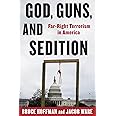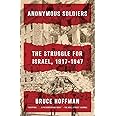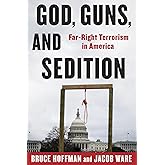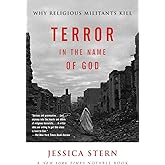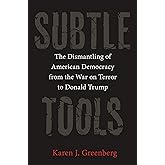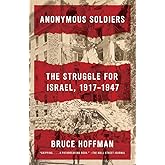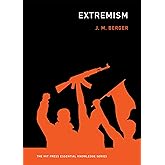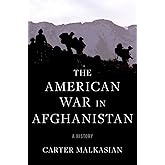
Download the free Kindle app and start reading Kindle books instantly on your smartphone, tablet or computer—no Kindle device required.
Read instantly on your browser with Kindle for Web.
Using your mobile phone camera, scan the code below and download the Kindle app.

Inside Terrorism Paperback – 5 September 2017
You can select and apply an appropriate plan based on your cart value at checkout.
-
Pay at Your PaceZip
| Account type | Interest |
|---|---|
| Zip Pay | Always interest free^ |
| Zip Money | 6 mo interest free,
25.9% p.a. thereafter* |
^Zip Pay: Minimum monthly repayments are required. A monthly account fee of $9.95 applies and is subject to change. Pay your closing balance in full by the due date each month and we’ll waive the fee. Available to approved applicants only and subject to completion of satisfactory credit check. Other charges may be payable. Fees and charges subject to change. T&Cs apply.
*Zip Money: Interest free term subject to minimum spend and promotional partner offer. Available to approved applicants only and subject to completion of satisfactory credit check. The repayment advertised will repay the transaction balance within the advertised interest free period. A monthly account fee of $9.95 applies and a one off establishment fee may apply for new customers. Under the contract, minimum monthly repayments are required and will vary depending on your credit limit. Instalment plans split eligible purchases of $300 and above into equal repayments within the interest free period. If you turn off instalments, transactions will be reverted to the minimum monthly repayment. Paying only the minimum monthly repayment may not necessarily repay a purchase within the interest free period. Any balance outstanding at the expiry of the interest free period will be charged at the standard variable interest rate, 25.9% per annum, as at 1 June 2023. Other charges may be payable, see T&Cs. Interest, fees and charges are subject to change. Terms & Conditions apply and are available on application. See your contract for further details. Credit provided by ZipMoney Payments Pty Ltd (ABN 58 164 440 993), Australian Credit Licence Number (441878).
Purchase options and add-ons
Hoffman examines the demographics of contemporary terrorist leaders and recruits; the continued use of suicide bombers; and the likelihood of a chemical, biological, radiological, or nuclear terrorist strike. He also considers the resurgence of violent antigovernment militants, including white supremacists and opponents of abortion. He argues that the war on terrorism did not end with Osama bin Laden's death and that ongoing instability and strife in Syria, Iraq, Afghanistan, Libya, and Yemen, among other places, will both sustain terrorist movements and have broad implications for domestic and international security around the globe.
- ISBN-100231174772
- ISBN-13978-0231174770
- Editionthird edition
- PublisherColumbia University Press
- Publication date5 September 2017
- LanguageEnglish
- Dimensions15.24 x 2.54 x 22.86 cm
- Print length528 pages
Frequently bought together
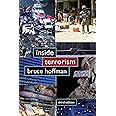
What other items do customers buy after viewing this item?
Product description
Review
Bruce Hoffman has produced a most welcome new and updated edition of his classic work, a book that provides an essential foundation for understanding the rapidly changing contours of terrorism. The third edition of Inside Terrorism is as timely, relevant, and analytically probing as ever.--Martha Crenshaw, Stanford University, coauthor of Countering Terrorism: No Simple Solutions
The classic work from the dean of terrorism studies. No one who cares about the struggle of our time should miss this book.--Lawrence Wright, author of The Looming Tower: Al-Qaeda and the Road to 9/11 and The Terror Years: From Al-Qaeda to the Islamic State
About the Author
Bruce Hoffman is a professor at Georgetown University's Walsh School of Foreign Service and director of the Center for Security Studies and the Security Studies Program. He is also a senior fellow at the U.S. Military Academy's Combating Terrorism Center and a visiting professor of terrorism studies at St. Andrews University. Hoffman is the editor of the Columbia University Press series Columbia Studies in Terrorism and Irregular Warfare, coeditor of The Evolution of the Global Terrorist Threat: From 9/11 to Osama bin Laden's Death (Columbia, 2014), and author of Anonymous Soldiers: The Struggle for Israel, 1917-1947 (2015).
Product details
- Publisher : Columbia University Press
- Publication date : 5 September 2017
- Edition : third edition
- Language : English
- Print length : 528 pages
- ISBN-10 : 0231174772
- ISBN-13 : 978-0231174770
- Item weight : 699 g
- Dimensions : 15.24 x 2.54 x 22.86 cm
- Part of series : Columbia Studies in Terrorism and Irregular Warfare
- Lexile measure : 1760L
- Best Sellers Rank: 131,351 in Books (See Top 100 in Books)
- 164 in Terrorism (Books)
- 176 in National & International Security (Books)
- 179 in Political Violence
- Customer Reviews:
About the author

Discover more of the author’s books, see similar authors, read book recommendations and more.
Customer reviews
Top reviews from Australia
Top reviews from other countries
 angelaReviewed in Canada on 17 October 2012
angelaReviewed in Canada on 17 October 20125.0 out of 5 stars Terrorism didn't begin with Arabs/Muslims
Verified PurchaseNeeded this book for a class in my university and it knocked out my presumptions (based on the title) and my prejudices and prior understanding of terrorism and terrorists. It seemed to be a pretty objective text and I highly recommend it if you're interested in some history and world politics.
-
 Enrique LópezReviewed in Spain on 6 January 2017
Enrique LópezReviewed in Spain on 6 January 20174.0 out of 5 stars Tratamiento global del terrorismo. Interesante
Verified PurchaseEste libro trata el fenómeno del terrorismo de forma amena. Su lectura aporta un conocimiento general de todos loa aspectos del terrorismo anivel global.
 dustyleeReviewed in the United States on 6 February 2007
dustyleeReviewed in the United States on 6 February 20075.0 out of 5 stars analyzes the political tactics of terrorism
Verified PurchaseI found this book to be quite enlightening as well as fascinating to read. Refusing to engage in the political rhetoric surrounding terrorism, the author, Bruce Hoffman, (an expert in counter-terrorism at West Point as well as a professor at Georgetown)follows the evolution of terrorism as a means of calling world attention to forgotten or underpublicized plights of the disenfranchised in order enact political change. This is accomplished through what he terms the "internationalization of terrorism" where terrorists enact "major media events" by the targeting of symbols of power. He examines the refinement of terrorist tactics by the Palestinian organizations, and refutes the idea that terrorism is ineffective, pointing out how the Palestinian cause has gained worldwide recognition and (frequently) sympathy through the advertisement of their cause via use of terrorist events. He investigates the role of the media in this process, and develops the hypothesis that part of what has occurred leading to the current state of affairs is, like an addict, the terrorist organization needs increasingly horrific and intense events to gain the attention that will put it in the media spotlight. This is supported by how the news of "car bombings" in Bagdad start to sound like weather reports--because they are a daily occurance and fail to engender the level of horror and outrage that they should, and would have, just a few years ago. This is an excellent analysis of the historical developments that form the basis of present-day terrorism, and Hoffman is only able to do this by putting aside the rhetoric of "evil" which only confounds our capacity to understand and effectively address the threats of terrorist activity.
 Elias DavidssonReviewed in Germany on 26 March 2014
Elias DavidssonReviewed in Germany on 26 March 20141.0 out of 5 stars Presumptuous and devoid of scholarly value
Verified PurchaseBook review (Bruce Hoffman: “Inside Terrorism”, Columbia University Press, New York)
The author was for a long time a director at RAND Corporation in Washington, which he designates in his book as an “independent, objective, nonpartisan research institution” (p. xi).
As an external observer, researcher and author, I have followed with keen interest for many years the debate surrounding the phenomenon of terrorism: Its definition, rationale, execution, effects and legal aspects.
I came initially across Hoffman’s book when I examined the activities of Germany’s Federal Center for Political Education (Bundeszentrale für politische Bildung, or BpB), which is not, as it name might suggest, a university institute or a department in the Ministry of Education, but the propaganda section of the Ministry of the Interior). The BpB promotes Hoffman’s book (in its German translation) to German schools and universities as a textbook on terrorism. After reading that book, I spent long hours writing a detailed critical review of it in German, which is posted on the internet. I thought I had fulfilled thereby by civic duty.
Then I discovered that Bruce Hoffman was not only an author of junk science, but is periodically invited to comment on CNN, the Washington Post, the New York Times and other leading media, as an “expert” on terrorism. This discovery compelled me to share my exposure of Hoffman as a fraud with a larger audience, and particularly with unsuspecting potential buyers of his book. I do not intend, however, to provide a review of all the author’s scholarly sins, as this would require a volume exceeding in size the very book in review. I will limit myself to point to a few elements that demonstrate (a) the deceptive nature of the book; and (b) its utter lack of scholarly value.
(1) The deceptive appearance of erudition
Hoffman’s book (revised and expanded edition) consists of 432 pages. The author devotes no less than 45 pages to a bibliography on terrorism, a whopping 72 pages to footnotes and 18 pages for an index. This extraordinary accumulation of sources creates the outward appearance of erudition and comprehensiveness. Indeed, at first glance, one is led to believe that the author is extremely well informed and that his text is grounded on a comprehensive study of the literature. Yet, one discovers soon that this impression is deceptive, for the bibliography omits major critical works on terrorism.
Thus, the author omits from his bibliography critical works on the events of 9/11, such as those by Prof. David Ray Griffin and Dr. Nafeez Mosaddeq Ahmed. Prof. Griffin’s first book on 9/11 “The New Pearl Harbor: Disturbing Questions about the Bush Administration and 9/11,” remains a landmark and a must for any student of these events. Dr. Ahmed, a scholar living in Ireland, deals at depth with the covert relationship between Western intelligence agencies and al-Qaeda. The same omission applies to critical studies regarding the London Underground Bombings of July 7, 2005, or to those of the Mumbai 2008 attacks. Any serious student of terrorism cannot avoid coming sooner or later across serious critical works which examine the forensics of various terrorist acts and governmental efforts to cover-up the events. I include below a short select bibliography of such works.
(2) Junk science
(a) Treatment of facts.
Good scientists are immediately recognized by the way they handle facts: They go to great pains to establish the empirical ground on which they base their theories. Before a theory is proposed, the underlying facts are tested for reliability on the base of credible sources and when doubt about a fact exists, an honest scholar will share that doubt with readers and steer clear from sweeping assertions.
True scholars are also known to treat with circumspection statements by third parties, particularly when these parties do not report their own observations but merely what they have been told or had read. True scholars do not rely on unidentified and unverifiable sources.
There would be no purpose in harping on such commonplace rules of good scholarship, were it not for Mr. Hoffman’s systematic violations of these basic rules. I have stopped counting the unsubstantiated allegations made by him in his book and the number of cases where he relies on obviously dubious sources, such as on statements pronounced by a figure resembling Osama bin Laden on a video recording of dubious provenance.
(b) Disregarding the two most potent types of terrorism
The author is presented by mainstream media as an expert on terrorism, a designation that he does not dispute. Yet, from the three types of terrorism, he ignores completely the two main and most potent types: Overt state terrorism and false-flag terrorism.
Overt state terrorism refers to the overt use or threatened use of force or violence by state governments against people or property with the intention of intimidating or coercing societies or governments. Overt state terrorism includes, inter alia, carpet bombing cities, comprehensive economic sanctions, the institutionalization of arbitrary rule and mass surveillance. Actually, the very term terrorism was initially used only for state violence.
False-flag terrorism refers to what is also designated as “false-flag” or “synthetic” terrorism. False-flag operations are carried out secretly by military or police forces with the purpose to incite a population against a particular “villain.” False-flag operations are staged to appear as if they had been carried out by the “villain.” Due to the need to conceal the links between the perpetrators and state agencies, such operations require a high degree of secrecy and compartmentalization and are thus very complex. Substantial efforts are typically invested in the subsequent cover-up of such operations. A classical case of false-flag terrorism was the burning of the Reichstag in Berlin in 1933, which was immediately seized by the new Nazi authorities to arrest communist and socialist leaders and establish a police state. Other well-publicized cases of false-flag terrorism include Operation Northwoods (U.S.), the Lavon Affair (Israel) and the Gladio network (West Europe). False-flag operations are thus a distinct type of terrorism that calls for a completely different analytical approach than traditional or genuine terrorism.
The author not only ignores the very existence of false-flag terrorism but attributes all probable cases of such false-flag operations to al Qaeda and to an alleged corruption of Islam. The author, thereby, not only confuses and misleads his readers, but engages in slander and contributes in his modest way to shield the true criminals of these operations.
(c) No assessment of terror investigations
As terrorism is essentially a violent form of political expression, it follows that states possess vital interests in either elucidating or concealing facts surrounding specific cases of terrorism. Due to the political nature of terrorism, States are never neutral observers of such crimes. For that reason, a serious scholar will meticulously scrutinize the direction, manner and zeal of governments to investigate the crime.
States are actually dutybound under human rights law to investigate cases of killings that occur within their jurisdictions. Such investigations must be carried out in good faith. State investigations into killings can be objectively assessed, using criteria of adequacy developed by the European Court of Human Rights, such as promptness, thoroughness, impartiality, the independence of the investigators and transparency. States who fail to fulfil these criteria of adequacy can be presumed to act in bad faith. They call on themselves suspicion. Such presumption arises, for example, with regard to 9/11, the investigation of which has been grossly inadequate, as demonstrated magistrally by Prof. David Ray Griffin in a book entirely devoted to the 9/11 Commission (“The 9/11 Commission Report: Omissions and Distortions”)
The author’s discussion of terrorism relies almost entirely on either dubious terrorist sources or on allegations made by governments. He does not bother to scrutinize the investigations conducted by governments after terrorist attacks, suggesting that we may trust these investigations. The author does not even hint that some of these investigations may have been rigged, a charge made even by the chairman and vice-chairman of the 9/11 Commission after the Commission was disbanded.
(d) Hoffman and the story of Mohamed Atta’s suitcases
The story of Mohamed Atta's two suitcases found at the Boston Aiport on September 11, 2001, because they were not loaded onto the doomed aircraft, is well known. The story has been reported world-wide and used unsparingly to establish the official legend on 9/11.
Hoffman builds upon this legend to press his point that the 9/11 “hijackers” were motivated by religion. He thus wrote: "It only remains briefly to clarify the role religion played in the motivation of the hijackers. This can be seen very clearly in the 'spiritual guide' written for his accomplices by Mohammed Atta, the leader of the operation, and one of four pilots. The guide was found seven (sic) days after the attacks at the Boston Logan Airport because one (sic) of Atta's suitcases was mistakenly not transferred from the Portland, Maine, flight to American Airlines Flight 11."
Let us forgive the author for his harmless inaccuracies, such as the claim that the guide was found seven days after the attacks. Less forgiveable is the author’s lack of intellectual curiosity. For one of the persistent questions regarding this episode is: What prompted Atta to drive to Portland on September 10, 2001 and fly from there back to Boston on an early-morning flight? For had his connecting flight from Portland to Boston been delayed, he wouldn’t be able to carry out the first attack on the World Trade Center, meaning that no TV channels would be on the spot to film in real-time the impact of the second plane’s impact. His “life mission” would be a fiasco and would have betrayed the trust Osama bin Laden allegedly placed on him. The puzzling detour to Portland was noted by the 9/11 Commission, which was unable to provide a compelling explanation. But there exists an explanation, one that is ignored by author Hoffman.
Let us briefly describe what was found in Atta’s suitcases: When the police opened these suitcases, it found in them all the constituent elements for building the 9/11 legend: a portable electronic flight computer, a manual for aircraft simulators, a flight computer, a handwritten text in Arabic, a folding knife, pepper spray, three English grammar books, an Arabic- English dictionary, a bottle of perfume, three photographs, letters from the University of Cairo to Mohamed Atta, a picture of a visa, Alomari’s passport and much more. This finding was hailed as incredible luck, or as The Guardian wrote on October 1, 2001, “The finds are certainly very fortunate, though some might think them a little too fortunate.”
Were all these items packed into the suitcase in order be found by investigators? Perhaps. But in that case, the packers could not have been the “terrorists” because they could not have expected their suitcases to be forgotten in Logan “by mistake.” Did the “terrorists”, then, pack these items in order that they be destroyed in the aircraft crash? Perhaps. But in that case, why did they pack a folding knife and pepper spray into the suitcases, instead of taking these tools along on their bodies for use in the hijackings? Neither explanation makes sense.
Bruce Hoffman does not consider the possibility that Atta’s suitcases and their contents might have been planted there to be found. This possibility occurred, however, to may who observed with bewilderment the sheer quantity of incriminating items found almost immediately in the suitcases and in other locations. Hoffman can, however, be forgiven for ignoring what Philip A. DePasquale, a baggage expediter at Logan Airport in Boston, told the staff of the 9/11 Commission staff on February 10, 2004, regarding these suitcases (source: FBI document 302-46163, quoted in MFR04016228 of the 9/11 Commission). DePasquale told the staffers that the suitcases carried a “covert tag from US Airways [in Portland] to warn that Atta and his luggage were a security issue.” That means that someone at US Airways was told of Atta’s alleged “security threat” before the attacks had started. In other words: Someone knew who Atta was, monitored his movements, and ensured that baggage handlers at Logan will retain Atta’s bags.
Readers may reflect upon DePasquale’s testimony and its implications regarding the events of 9/11.
(e) Terrorist “manuals”
On page 251 the author cites “manuals” for the wannabe terrorist, that were allegedly found by unidentified persons on undisclosed dates in unspecified Qaeda’s training camps in Afghanistan. These “manuals” are cited by the author as a result of al Qaeda absorbing “lessons” from previous experience “in order to help its operatives blend in in Western environments and avoid attracting attention.“ These manuals include advice such as:
• “Don’t wear short pants that show socks when you’re standing up. The pants should cover the socks, because intelligence authorities know that fundamentalists don’t wear long pants...
• Underwear should be the normal type that people wear, not anything that shows you’re a fundamentalist.
• Not long before traveling - especially from Khartoum – the person should always wear socks and shoes to [get] rid of cracks [in the feet that come from extended barefoot walking], which take about a week to cure...
• You should differentiate between men and women’s perfume. If you use women’s perfume, you are in trouble.”
Leaving aside these highly bizarre admonitions, it is interesting that the authors of these “manuals” used the term “fundamentalist” to describe their own movement. Is this how jihadists refer to themselves or were the authors perhaps half-baked orientalists working for RAND Corporation?
If the purpose of the “manuals” had been to help al Qaeda operatives “to avoid attracting attention” in Western environments, as argued by author Hoffman, there is no indication that these “manuals” warned wannabe terrorists to avoid the police in “enemy territory”. For the alleged 9/11 terrorists were repeatedly arrested in the United States for too fast driving and one of them even complained to the local police about being mugged. Mohamed Atta once attracted unusual attention to himself by leaving a small aircraft in the middle of the runway of Miami airport, because he did not know how to restart the engine. This would normally cause him to lose his flight license or trigger an inquiry. But not in his case. He apparently had some protectors at higher places.
Author Hoffman blithely ignores all these widely reported facts, which would have seriously dented the theories he promotes.
Conclusions
My findings above confirm what German intellectual Reinhard Jellen once wrote, namely that "ignorance and pretension [are today ] not obstacles, but on the contrary prerequisites for professional success.” This can be observed in the case of Bruce Hoffman and others in the same league. That such a book was published by Columbia University Press taints seriously the credibility of that publisher.
While utterly useless as a textbook on terrorism, Bruce Hoffman’s book can be profitably used by aspiring academic prostitutes.
Select Bibliography
• Aaronson, Trevor, “The Informants”, Mother Jones, September/October 2011, at [....]
• Aggoun, Lounis and Jean-Baptiste Rivoire, Françalgérie, crimes et mensonges d’États, La Découverte (Paris) 2004
• Ahmed, Nafeez Mosaddeq, The London Bombings: An Independent Inquiry, Duckworth (London), 2006
• Ahmed, Nafeez Mosaddeq, The War on Truth: 9/11, Disinformation, and the Anatomy of Terrorism, Olive Branch Press, Northampton (Mass.), 2005
• Davidsson, Elias: Hijacking America’s Mind on 9/11, Algora Publishers, New York, 2013
• Fetzer, James H.(ed.), The 9/11 Conspiracy: The Scamming of America, Carus Publ. Co. (Illinois) 2007
• Gaffney, Mark H., The 9/11 Mystery Plane and the Vanishing of America, Trine Day LCC (Oregon) 2008
• Griffin, David Ray, 9/11 Contradictions: An Open Letter to Congress and the Press, Olive Branch Press (Northampton) 2008
• Griffin, David Ray, Christian Faith and the Truth Behind 9/11, Westminster John Know Press (Louisville, London) 2006
• Griffin, David Ray, The 9/11 Commission Report: Omissions and Distortions, Olive Branch Press (Northampton) 2005
• Griffin, David Ray, The New Pearl Harbor Revisited: 9/11, the Cover-Up, and the Exposé, Olive Branch Press (Northampton) 2008
• Griffin, David Ray, The New Pearl Harbor: Disturbing Questions about the Bush Administration and 9/11, Olive Branch Press (Northampton) 2004
• Henshall Ian and Rowland Morgan, 9.11 Revealed: Challenging the Facts behind the War on Terror, Robinson (London) 2005
• Hopsicker, Daniel, Welcome to Terrorland: Mohamed Atta and the 9-11 Cover-Up in Florida, The Mad Cow Press (Oregon) 2004
• Keenan, Jeremy, The Dark Sahara: America’s War on Terror in Africa, Pluto Press (London) 2009
• Kollerstrom, Nick, Terror on the Tube: Behind the Veil of 7/7, Progressive Press, California, 2011
• Lance, Peter, The 9/11 Commission Cover-Up: What the Government is Still Hiding About the War on Terror, ReganBooks, 2004
• Lance, Peter, Triple Cross: How Bin Laden’s Master Spy Penetrated the CIA, the Green Berets, and the FBI, HarpersCollings Publishers, New York, 2006
• Miquel, Mathieu, “Attentats de Madrid: l’hypothèse atlantiste”, Réseau Voltaire, 6 novembre 2009, at [.....]
• Morgan, Rowland, Flight 93 Revealed: What really happened on the 9/11 ‘Let’s Roll’ flight? Robinson (London) 2006
• Rooper Alison (executive producer of film): “Massacre in Luxor”, BBC, 2002, at [....]
• Ruppert, Michael C., Crossing the Rubicon: The Decline of the American Empire and the End of the Age of Oil, New Society Publishers, 2004
• Samraoui, Mohammed, Chronique des années de sang: Algérie – comment les services secrets ont manipulé les groupes islamstes, Editions Denoël (Paris) 2003
• Scott, Peter Dale, The Road to 9/11: Wealth, Empire and the Future of America, University of California Press, 2007
• Tarpley, Webster Griffin, 9/11 Synthetic Terrorism Made in USA, Progressive Press, 2006
• Zwicker, Barrie, Towers of Deception: The Media Cover-Up of 9/11, New Society Publishers, 2006
 Carrie McCReviewed in the United Kingdom on 9 May 2013
Carrie McCReviewed in the United Kingdom on 9 May 20135.0 out of 5 stars An impressive review of terrorism
Verified PurchaseThis is an easy to read, well written analysis of all aspects of terrorism. Although wordy in parts - this book would not pass the plain English test - the fluidity and pace of the narrative and the diversity of topics covered mean this this book still provide a clear and comprehensive overview of terrorism. I have found it to be indispensable in further study of this area as it is reference by a number of other leading scholars in the field.





